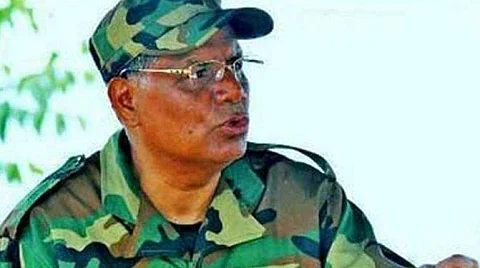

GUWAHATI: Paresh Baruah, the self-styled “commander-in-chief” of the banned insurgent group United Liberation Front of Asom-Independent (ULFA-I) on Saturday denied media reports about fratricidal killings in the organisation.
He, however, admitted that some members of the outfit were awarded capital punishment as they were found fleeing with weapons and acting as informers of the enemies.
His assertion comes in the wake of media reports that at least three rebels were awarded capital punishment by the outfit in its Myanmar camp. The Army had on Thursday apprehended a ULFA-I militant, Mridul Mahanta aka Nibir Asom, who disclosed the killings.
Baruah was not specific about the exact number of the rebels killed. He said the punishment meted out was not unprecedented.
“They were punished as according to our constitution. It has prescribed death penalty for any of our members if found fleeing with weapons or sharing classified information of our organisation with the enemies,” Baruah told an Assamese news channel.
He added: “During trial in the court of our organisation, they were found guilty on both counts and as a result, awarded capital punishment”.
The elusive Baruah said a number of rebels in the outfit had been awarded capital punishment since 2012-13 for such crimes.
“None among us is above our constitution. We hail those who die fighting for our cause as martyrs. However, we view those who are killed for fleeing with weapons or acting as informers of the enemies as criminals. We don’t remember them nor do we inform their families of their death,” Baruah said.
He confirmed the recent offensive by Myanmar Army against militants of India’s Northeast holed out in the jungles of Myanmar but said such incidents are common in an armed conflict or “revolution”.
In the offensive carried out two months ago, the Myanmar Army, officially called Tatmadaw, had dismantled a number of camps of the militants from Northeast. The militants operate from Taga in Myanmar.